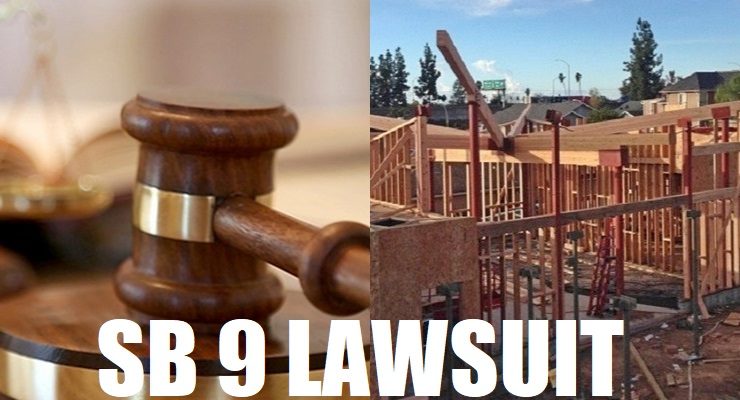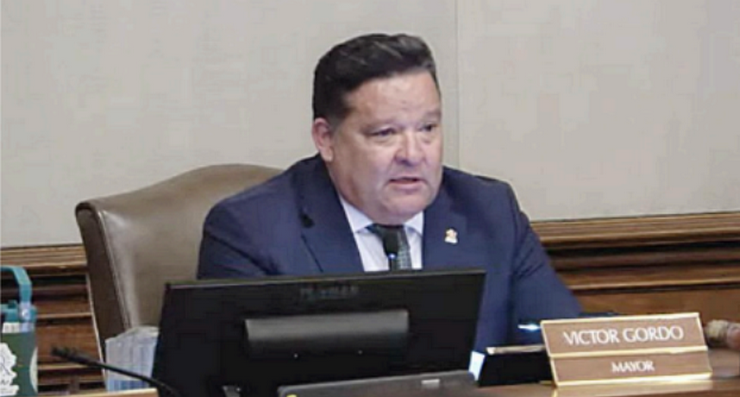[Updated] Four Southland cities, led by Redondo Beach, have filed a legal challenge to Senate Bill 9, a state law that permits single-family lots to be divided for the development of two to four houses.
Redondo Beach Mayor Bill Brand spoke to the Pasadena City Council in December and asked Pasadena to join the lawsuit.
“We did not,” Pasadena Mayor Victor Gordo said Friday in an interview. “Pasadena adopted an emergency ordinance which is consistent with SB-9 rather than pursuing litigation.”
Gordo said Pasadena’s urgency ordinance supports SB 9’s provisions which prohibit its application to any parts of the city designated as historic or landmark districts. The city’s ordinance drew the ire of California Attorney General Rob Bonta, who claimed it is unlawful. The city is expected to respond soon.
This week’s Los Angeles Superior Court petition was brought Tuesday against Attorney General Rob Bonta by the cities of Redondo Beach, Torrance, Carson and Whittier, whose leaders want a court order finding the law in violation of the state constitution along with a prohibition on its enforcement.
A representative for the Attorney General’s Office issued a statement Thursday regarding the petition.
“Every day, millions of Californians worry about how they are going to keep a roof over their head,” the statement read. “With the median home price in California continuing to reach new highs, it’s clear that we need action, now. We need local governments to act as partners in this fight. Unfortunately, there are some who appear committed to throwing up roadblocks instead. SB 9 is an important tool to combat California’s statewide housing crisis by promoting supply and affordability. We look forward to defending this important law in court and we will not be deterred from our ongoing efforts to enforce SB 9 and other state housing laws.”
But according to the four cities’ petition, it is “undisputed that planning and zoning laws are matters of municipal affairs. The constitutional right of municipalities to zone single-family residential districts and the sanctioning principle upon which that right is founded has been well settled law for almost 100 years.”
By enacting SB 9, the state “eviscerated a city’s local control over land use decisions and a community-tailored zoning process,” the petition states.
Gov. Gavin Newsom in September signed into law SB 9, which its proponents said will open up opportunities for homeowners to help ease the state’s housing shortage while still protecting tenants from displacement. The law opens the door for the development of up to four residential units on single-family lots across California.
Prior to signing the bill, Newsom was presented with a letter signed by about 240 cities and the League of California Cities, all urging him to veto the bill.
“SB 9 does not guarantee the construction of affordable housing, nor will it spur additional housing development in a manner that supports local flexibility, decision-making and community input,” the SB 9 opponents said.
SB 9 backers argue it ensures access to affordable housing as a matter of statewide concern that justifies its applicability to charter cities, but the bill does not require the newly created homes or the lots to have any affordability covenants or to be restricted to moderate- or lower-income households, according to the petition.
“Thus, in very urbanized areas where housing demand and prices are high, SB 9 housing developments could be sold or leased at market rate prices, which would do nothing to address housing affordability and could exacerbate unaffordability by taking away potential affordable housing locations,” the petition states.
SB 9 also will raise land and home values, particularly in already very urbanized areas, making it harder for first-time home buyers to “get their foothold on the American Dream and further alienating lower-income households,” the petition states.
The four cities recognize that housing, including housing affordability, are serious issues that must be addressed at both the state and local levels and already have been active in finding ways to provide more housing and affordable housing for residents, according to the petition.
For example, over the past 20 years, the city of Carson, through its Housing Authority, assisted in the development of almost 1,000 affordable housing units and over 900 housing units are currently under construction or approved within the community, according to the petition.



















